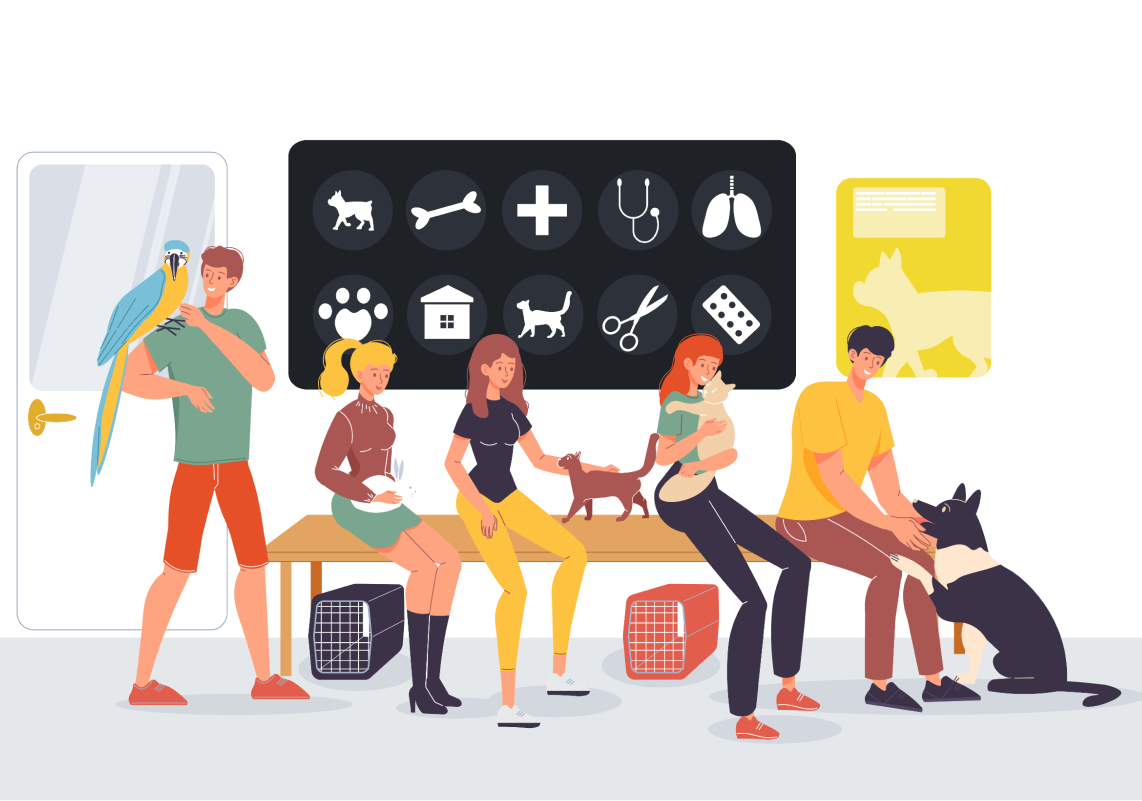Oral care for your beloved pet is necessary. So many other problems occur from having a dirty mouth that this facet of pet healthcare should not be overlooked or dismissed. Yes, there is a cost for this care, and it can get pricy depending on whether your pet needs a simple cleaning or a tooth(teeth) extraction.
If you take your pet in for annual wellness exams, your veterinarian will or should be instructing you on proper dental care. Yes, that means trying to brush your pets’ teeth and giving them adequate chew toys. This is no easy task, and it will require you to spend time training your pup or kitty to look forward to routine oral care. There is a myriad of products out there to address this issue, but it is up to you to ensure that your pet has a healthy oral care routine.
A few Oral Care Pet Facts
- Dental disease is a painful condition that occurs when bacteria, plaque, and tartar build-up on the tooth and below the gum line.
- Dental disease begins early in life. Usually, by age three, most dogs and cats have some initial signs of dental disease. It usually starts with bad breath and yellowing with an accumulation of tarter on the teeth, if left unchecked you will see red and swollen gums.
- Dental disease causes significant pain in your pet. Your pet is an expert at hiding pain. If they have inflammation, infection, or diseased teeth you may be able to determine that it is time to get them in for an oral exam. If you notice them dropping food, eating less, or becoming irritable or lethargic, it may be a sign of dental disease.
You need to understand that your pet will need dental X-rays, these X-rays are paramount to determining the progression of the dental disease and are useful in determining the next course of action by your veterinarian. It is important to note that pets that had normal appearing teeth were found to have a higher percentage of dental disease, veterinarians discovered that 27% of dogs and 46% of cats showed signs of diseased teeth.
One of the most vital facts about your pets’ teeth is that unlike human teeth, your pets’ teeth are not designed to come out! They are much more difficult to extract.
This is why extraction of diseased teeth is a costly proposition. Removing a tooth in a dog, say a canine tooth is a laborious, time-consuming endeavor.
There is special equipment needed, from anesthesia to high-speed dental units, and a variety of surgical instruments required to make the procedure go according to plan.
In cats it is a much more delicate operation, requiring a great deal of patience and a precise delicate touch. The fragility of a cat’s jaw is far more susceptible to fracturing than a dog’s.
In my previous post I spoke about the fact that not all veterinary college curriculums are the same, and there has been a push recently to include more dental training to the veterinary candidates, however, in the meantime the lack of overall dental training is being met by board certified dental specialists called diplomates, these diplomates conduct training at various sites and conferences throughout the year to ensure that general practitioners have the necessary skills to address dental disease properly. Many of these diplomates even provide “Tooth Camps” for veterinary technicians who perform most of the cleaning in a veterinary practice, (think of it in the same way your dental hygienist on the human side do cleanings), leaving extractions and more complex dental procedures to the veterinarians, thereby ensuring your pet receives the highest standard of care.
In a future post I will be writing more about “board certified” practitioners and the key role they play in your pets’ health. In dental, these specialists have been certified by the American Veterinary College of Dentistry and are your veterinary specialists for addressing complex dental procedures like root canals, oral tumor removal, corrective orthodontics, and repair of jaw fractures. While they can and do perform normal cleaning and extractions, their specialization in dentistry provides expertise, and experience that exceeds that of the general practicing veterinarian.
Summing it Up
In conclusion, the need for you, the pet owner, to provide oral health homecare is important to the happy life of your pet. Brushing your pets’ teeth daily will promote good oral health and prevent potentially more expensive procedures later. There are a variety of products from animal focused toothbrushes and toothpastes flavored specifically for your pet. Important note: Never use human toothpastes, which contain ingredients like xylitol that are toxic to animals. Be sure to use only those products approved by the VOHC, the Veterinary Oral Health Counsel. A special diet may also be beneficial in maintaining proper oral care by reducing the accumulation and build-up of plaque and tarter, and try to avoid letting your pet chew on bones, synthetic bones, antlers, and tennis balls; these can quickly cause excessive wear and fractures, all detrimental to the oral well-being of your pet.






